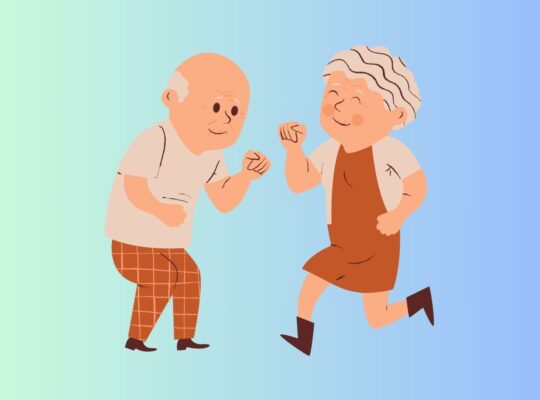Empathy is the ability for humans to recognize, understand, and share thoughts and feelings of another person, animal, or character. Developing empathy is an essential aspect of establishing healthy relationships and behaving compassionately throughout life.
Empathy allows you to experience another person’s point of view, feelings, or behaviors rather than just your own. Empathy comes from within rather than experiencing another person’s feelings or behaviors in a forced manner. There are different types of empathy that people can display.
What Is Cognitive Empathy
Cognitive empathy is also referred to as perspective-taking, which is not what most people would consider empathy at all. Cognitive empathy is being able to put yourself into someone else’s shoes to see their perspective of various situations. This is a useful skill for many people especially those in leadership positions.
Cognitive empathy allows you to put yourself in someone else’s place; however, you do not engage in their emotions. Cognitive empathy is more of a rational or logical process rather than aligning with the definition of empathy as “feeling” others’ emotions.
What Is Compassionate Empathy
Compassionate empathy is the most common empathy that we understand. Compassionate empathy is when you feel someone else’s pain and take action to help to ease that pain. Compassionate empathy is about feeling concern about someone in physical, mental, or emotional pain and taking action to mitigate the issues causing that person pain.
Most people who want your empathy do not necessarily want you to empathize with them to know what they are feeling, they want you to take steps to help them out of the situation they are in any way that you can. You must be cautious with this however, some people can use your empathy to get what they want and use your good character for malicious intent or to manipulate others.
What Is Emotional Empathy
Emotional empathy is when one can emotionally feel others’ emotions along with them. Emotional empathy is also referred to as personal distress or emotional contagion. Emotional empathy can be good and bad. Good emotional empathy means that one can readily understand and feel people’s emotions.
This is especially important for those in professions such as doctors and nurses as it helps to respond to a patient’s needs appropriately. It can also help in our relationships as well. You can emotionally empathize with friends and family members when they are distressed.
5 Signs You Are Not An Empathetic Person
Not everyone is an empathetic person, and there are many different reasons why. Some people have mental disorders, are very selfish, or were never in situations where empathy was learned during youth. Here are a few signs that show you may not be empathetic.
1| People Do Not Come to You for Advice or Support
When people who are not empathetic, others typically will not come to you for advice or support when experiencing difficult times. People who do not show empathy to others do not listen to others’ issues or try to help them get through the tough times.
Non-empathetic people rarely offer help to those that need help, and when they do, most times, those people expect something in return rather than doing it out of the goodness of their hearts. People that are not empathetic tend to expect others to help them in difficult situations and ask for your support but will not provide the same to those that helped them when they need it.
2| Do More Talking Than Listening
If you are a person that is not empathetic, you probably do more of the talking than the listening. People who talk more than they listen show that they feel like what they have to say is more important than what anyone else has to say.
People like that think that nothing else matters than what they are talking about and expect you to listen and engage in the conversation you are involved in. People who are not empathetic tend to expect people to be empathetic to them even though they are not the same.
3| Do Not Put the Needs of Others First
When you are not an empathetic person, you do not put others’ needs above your own. Most people that are not empathetic expect all their needs to be taken care of, whether they take care of those needs themselves or allow others to do it for them.
These people are more concerned about making sure they are always taken care of rather than taking care of those close to them to include family members. There has to be a balance between taking care of others and taking care of yourself; however, when you never put anyone else before yourself, you may be a person that does not express empathy for anyone in your life.
4| Cannot Detect Positive and Negative Vibes
Empathetic people can detect different vibes from people that are around them. However, if you are not an empathetic person, you may not have the ability to sense these vibes. Having the ability to detect these vibes come from the ability of being able to experience the feelings of others around them.
Non-empathetic people are not able to relate to the feelings or feeling the pain that others are feeling. When you cannot sense the feelings of others, you also cannot sense the vibes surrounding you in a certain location or area.
5| You are Not a Good Salesperson
If you are a non-empathetic person you will find it extremely hard to be a successful salesperson. Successful salespeople are successful because they can relate with their clients and put themselves into others’ shoes. T
This makes it easy for clients to trust their salesperson. The salesperson can show their client that they are actively listening to what the client is looking for; non-empathetic people do not have these qualities and find it difficult to trust others.
Non-empathetic people are also not good at letting others talk or listen to that person’s needs. Being able to listen and gain the trust of clients is essential to making a sale.
5 Signs You Are An Empathetic Person
There are many ways to see if you are an empathetic person or not. Being empathetic is not a bad thing either. If you can keep control of your emotions and not let others take advantage of your character. Here are five signs that you are an empathetic person. Of course, there are many other signs that you may find as well, that are not listed below.
1| You Are A Great Listener
People that are great listeners are often very empathetic people. Listening rather than speaking allows the listener to put themselves into the speaker’s shoes and see the situation from the other person’s perspective. When you listen to someone, you are truly trying to understand the struggles and difficulties that the other person is experiencing.
A great listener not only listens to the words that are spoken but is also mindful of non-verbal clues that the speaker expresses while talking. The empathetic listener focuses on what is being said and really tries to put themselves into the other’s shoes to see what, if anything, they can do to help the situation. Good listeners stay actively engaged in the conversation.
2| You Put Others First
When you are an empathetic person, you tend to put the needs of others first and you take the passenger seat. You do all that you can to make sure the needs of those experiencing struggles and tough situations are taken care of to the best of your ability.
It is common to see people who are very empathetic to put other’s needs above their own, and over time, the empathetic person can begin to neglect themselves. Like anything else in life, there has to be a healthy balance.
3| You Are A Natural Leader
Empathetic people can be trusted by others very easily. Relationships with coworkers, friends, and family can be formed easily for empathetic people because of their natural compassion, natural empathy, and excellent listening skills. Successful leaders are active listeners and are genuinely involved and concerned with people.
These characteristics foster growth for open communication through the trust that they can build. People are more willing to follow people that they trust and people that show people matter. Followers like to feel as though they are being looked out for and have a voice, great leaders allow people to be heard and make each person feel valuable.
4| If Social Situations Are Draining
For empathetic people, they may find that social situations and gatherings are draining. Empathy generally prompts both positive and negative emotions from one person to another. When an empathetic person is introduced to a social event where every person within the location has good and bad feelings and emotions can be overwhelming.
Some empathetic people do not know how to handle situations like these and become so overwhelmed that they stop responding to their own emotions.
Once out of the situation, the empathetic person can feel drained, overtired, and just want to sleep. This could be a reason why some people are introverts and avoid social gatherings.
5| You Enjoy Your Relationship With Your Pets
Animals are good at sensing empathetic and sensitive people. They can tell if a person genuinely cares for them and, in turn, the relationship between person and pet grow deeper. Pets can tell that a sensitive person is there and there is an initial connection.
Pets can tell that empathetic people have the best intensions for them and that they are not there to hurt them. This is how you can earn the trust from your pets. This is another reason why some people say they trust their pet’s opinions about people they encounter.







